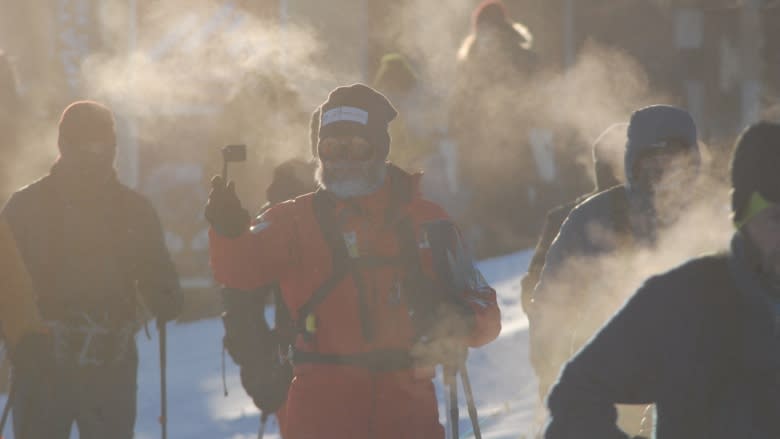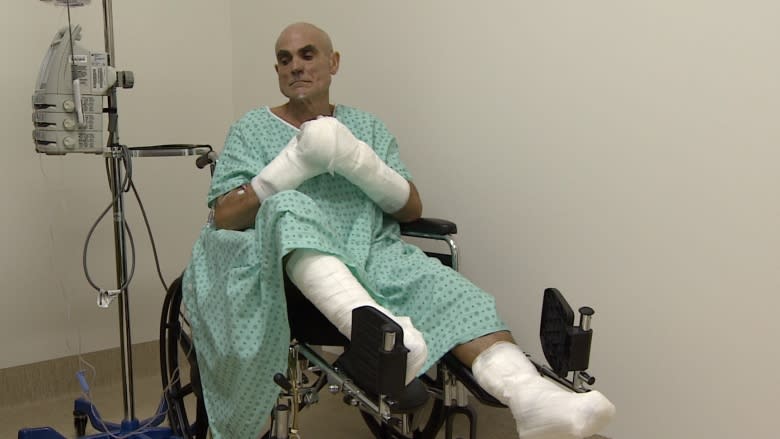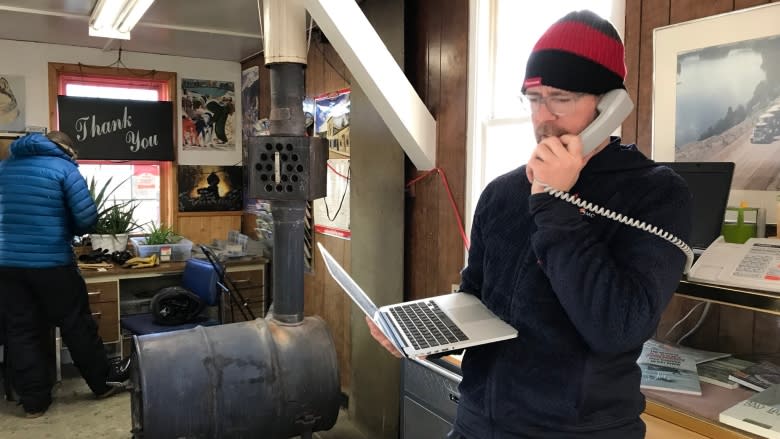Following frostbite incidents, Yukon Arctic Ultra not making changes to next year's race
Yukon Arctic Ultra organizers will not be making major changes to next year's race, despite two of this year's racers suffering severe frostbite leading to amputations.
Italian runner Roberto Zanda recently posted on social media showing both his legs amputated at the shin. His right hand was also amputated, and most of the left.
British racer Nick Griffiths lost three toes to frostbite due to the extreme cold during the race.
"What happened to Roberto had nothing to do with what we could or should have done differently," said Robert Pollhammer, the race organizer.
The annual race held every February describes itself as the "world's coldest and toughest ultra." Racers can choose to trek 160 or 480 kilometres in the Yukon backcountry.
As first reported by CBC, Zanda spent 18 hours wandering around in –40 C conditions with no shoes or gloves after becoming hypothermic six days into the nine-day race.
"The only thing that could make this race 100 per cent safe is if we basically walked behind the people, and nobody wants that," said Pollhammer.
"I can't really stop the race every time it gets down to –40 because then we wouldn't have much of an event in a cold year."
This year's race was halted for a short time after temperatures reached close to –50.
New rule: phone interviews
Pollhammer has changed one rule of the race, though. He is doing phone interviews with every racer that registers. He said that's to ensure they directly hear from him about the risks of competing, such as hypothermia, frostbite and even death. The phone interviews will also confirm that all the participants can speak English.
The races rules require that all athletes can speak English in order to understand information, waivers, and instructions on the trail.
Zanda does not speak English.
Before the race, Pollhammer said he was in contact with Zanda over email in English. Pollhammer said he later found out that Zanda had help writing those emails and failed to learn sufficient English before arriving for the race.
Zanda brought an Italian camera crew to the race with him, according to Pollhammer. One of those team members acted as a translator between Pollhammer and Zanda. Pollhammer said a member of his organizing team also spoke Italian and acted as a translator on the trail.
"There was no problem in Roberto not getting or not understanding the instructions that he was given," said Pollhammer.
Possible lawsuit
In a recent interview with the National Post, Zanda's wife, Jo Caria, said she is considering possible legal action against the race.
"It would be hard for her to file a lawsuit on behalf of her husband unless we can prove that the husband is incapable and doesn't have a legal capacity to file a lawsuit," said Marianne Saroli, a lawyer and sports law specialist.
Zanda told CBC in February that he did not regret running the race.
Pollhammer said he's not concerned about a lawsuit because he's confident that his team took all appropriate measures, and the rescue of Zanda was executed properly.
"Obviously, after the race I thought about not doing the race anymore thinking maybe this is not worth it," said Pollhammer.
However, he says many people reached out in support of the race encouraging him to continue despite this year's difficulties.
"That's why I still do it," said Pollhammer.
There are 36 people already signed up for next year's race starting on Feb. 3, 2019.




